 James Reich is a novelist, ecopsychologist, and critic. He is a contributing writer for Spin magazine, and his psychoanalytic nonfiction book, Wilhelm Reich Versus the Flying Saucers, will be published by Punctum Books in 2024. Born in England, Reich has lived in New Mexico since 2009. His sixth novel is The Moth for the Star (7.13 Books, September 12, 2023), which mixes an ecological crisis with occult conspiracies, time travel, and Jungian psychoanalysis.
James Reich is a novelist, ecopsychologist, and critic. He is a contributing writer for Spin magazine, and his psychoanalytic nonfiction book, Wilhelm Reich Versus the Flying Saucers, will be published by Punctum Books in 2024. Born in England, Reich has lived in New Mexico since 2009. His sixth novel is The Moth for the Star (7.13 Books, September 12, 2023), which mixes an ecological crisis with occult conspiracies, time travel, and Jungian psychoanalysis.
Handsell readers your book in 25 words or less:
Psychological, existential horror, set in Depression-era New York, Cairo, and Venice, concerning a killer who cannot recall his victim; a Satanic Gatsby.
On your nightstand now:
I've been reading The Selected Poetry of Pier Paolo Pasolini, edited and translated by Stephen Sartarelli. I'm quite taken with the poems from The Nightingale of the Catholic Church, with lines like "the light rots the sky." Last night, I finished Oded Galor's The Journey of Humanity during an appropriately dramatic thunderstorm. Among others I've enjoyed lately: James Baldwin's The Devil Finds Work and Jason McBride's Eat Your Mind: The Radical Life and Work of Kathy Acker, which I loved. I'm interested in writers who plough a lonely furrow.
Favorite book when you were a child:
I don't remember the book exactly, but there was an Eastern European folk tale--some variation on "The Glass Mountain" or "The Princess on the Glass Hill"--that made an impression on me. Also, A.A. Milne, and Kenneth Grahame's The Wind in the Willows--that kind of thing. In those days, one didn't have a "YA period" but made a literary leap of faith from children's books to adult literature. With pocket money, I bought a Penguin edition of Thomas Hardy's The Mayor of Casterbridge but was bored by it. I bought it because my mother liked Jude the Obscure, which is far better. But she also had a hardcover H.G. Wells collection that I thought was great, and so I started reading science fiction and Dylan Thomas, which have been the source of all my problems.
Your top five authors:
Oh, that's almost impossible! Among authors whose prose and ambition I admire, I would always include Norman Mailer, Joan Didion, D.H. Lawrence, and J.G. Ballard, who demands inclusion for his singular style. I also admire Henry Miller and Kathy Acker. As for technique, I can't say that Acker's collages and appropriations make her a better prose writer than Miller, but this is really splitting the baby. Terrible!
Book you've faked reading:
It's been a while, but as an undergraduate I couldn't bring myself to read Willa Cather's O Pioneers! It screamed tedium. I'm sure I must have lied about reading it to get by. I also faked reading Julian Barnes's Flaubert's Parrot, which I did start but really hated, because I found it smug. I might have finished it at some point of academic necessity, but I have almost no memory of it. It had a hideous cover. I remember that.
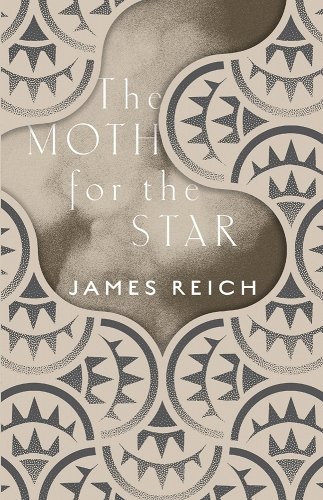 Book you're an evangelist for:
Book you're an evangelist for:
Heather Clark's Red Comet: The Short Life and Blazing Art of Sylvia Plath impressed me enormously, and I'm looking forward to her book on Anne Sexton.
Book you've bought for the cover:
That was definitely the case with Frank Herbert's Dune. The movie tie-in edition came out in 1984. It didn't show the cast--just the desert and two blue moons. I knew nothing about it. The David Lynch film wasn't released until mid-December, but the cover alluding to the film appeared in the summer, if I remember. Certainly, it was before the film's release. So I think I was 12 or 13 years old when I read it, and it was baroque, strange, and magnificent. I was also reading Michael Moorcock's Elric books around that time, and so Dune's weirdness, queer narcotic qualities, and intrigues sat well with me.
Book you hid from your parents:
I don't think I ever "hid" a book, but I do remember explaining many times to different people that the cover of H.P. Lovecraft Omnibus 2: Dagon and Other Macabre Tales, with its creature on top of a pile of bloody severed heads, did not reflect the oh-so-sophisticated content of the book. That was, again, when I was 13. Today, I would guess the book that raises eyebrows with guests would be Wilhelm Reich's The Function of the Orgasm, but again, one has to explain.
Book that changed your life:
One was Camille Paglia's Sexual Personae: Art and Decadence from Nefertiti to Emily Dickinson, which I read in the early '90s, not long after it was published. That combination of Freud with J.G. Frazer's The Golden Bough as a critical style, and her intensity and intelligence were the measure of my aspirations. My approach to literature has been psychoanalytic and mythopoeic, particularly since reading Camille Paglia. It'd be nice to thank her in person one day.
Favorite line from a book:
One among them would be: "As soon as he is with other men, Jesus is an aristocrat, a master." The line is from D.H. Lawrence's Apocalypse. It's a great existential truth. Only when he was alone could Jesus be merely a man. Strangely, that mirrors how I read Kerouac. I like his prose best when he is solitary and melancholy. When he is in the company of his heroes, he annihilates himself too much with worship. I've always found him a numinous, inspiring writer when he is alone with his thoughts.
Five books you'll never part with:
(All of the above and not least) an edition of Hamlet; Philip K. Dick's Do Androids Dream of Electric Sheep?; Paul Bowles's The Sheltering Sky; and the collected poems of both Sylvia Plath and Dylan Thomas.
Book you most want to read again for the first time:
Among others, Nietzsche's The Birth of Tragedy. I'd like to recapture those first impressions.
Your hopes and fears for The Moth for the Star:
I hope that people are moved by it. The first readers that I know of have read it as the tragic romance I intended and have not anticipated its ending. So I have some anxiety about the end getting out and readers not being able to have that experience of the novel. I'm sorry if I sound a bit like Alfred Hitchcock and "don't talk about this film!" That's another thing: I'd love to have someone interested in the film rights. I think it's cinematic. We'll see!
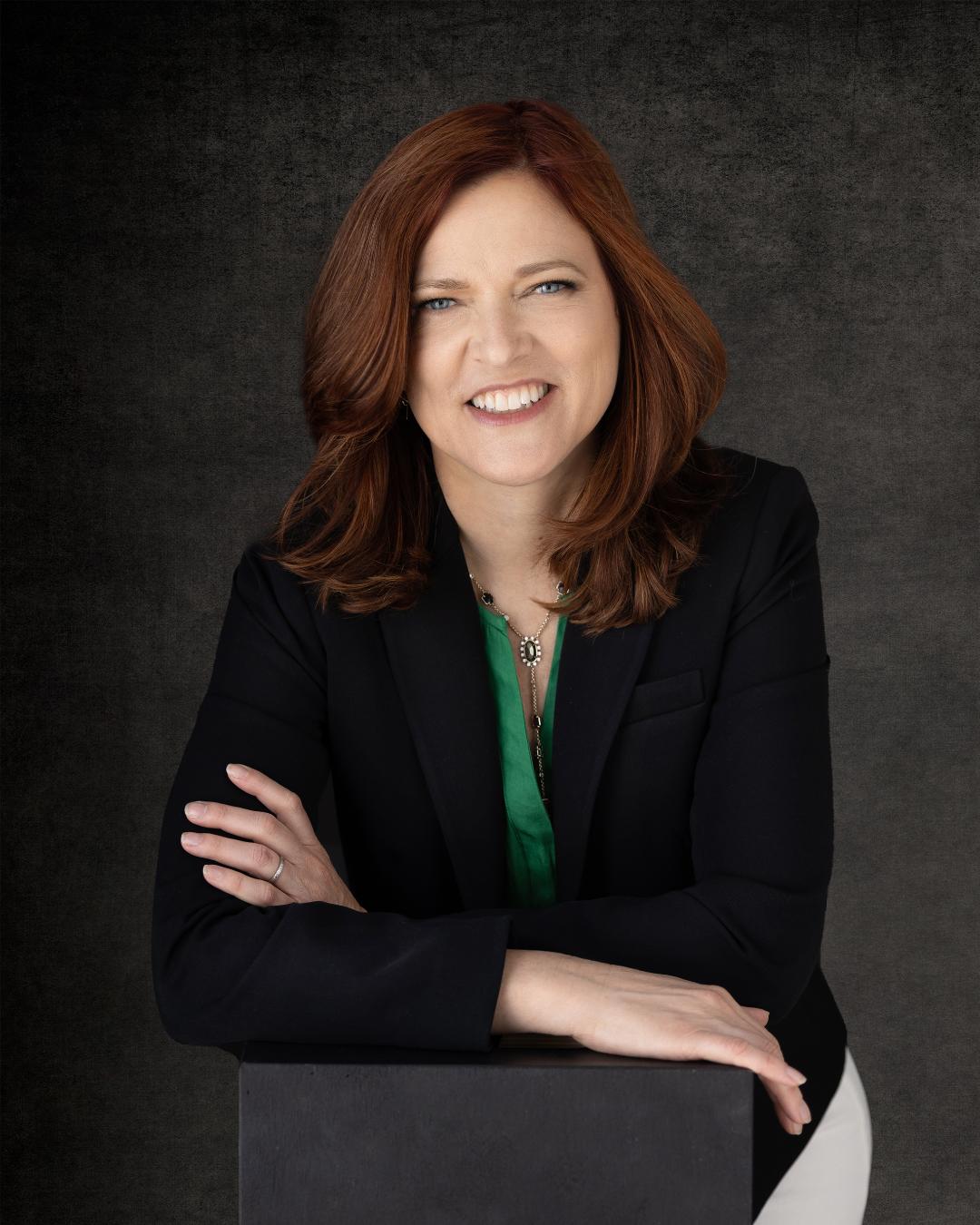 "The precipitous increase in book bans over the past two years represents a clear danger to the prosperity, safety, and growth of our members and their communities. Over the past year, we've seen a proliferation of bills in state legislatures that would censor books and limit access to lawful materials in schools and libraries, attempting to codify censorship into law in direct violation of the First Amendment. These bans clearly threaten free expression, equal representation in society, and free enterprise....
"The precipitous increase in book bans over the past two years represents a clear danger to the prosperity, safety, and growth of our members and their communities. Over the past year, we've seen a proliferation of bills in state legislatures that would censor books and limit access to lawful materials in schools and libraries, attempting to codify censorship into law in direct violation of the First Amendment. These bans clearly threaten free expression, equal representation in society, and free enterprise....




IPC.0204.S3.INDIEPRESSMONTHCONTEST.gif)




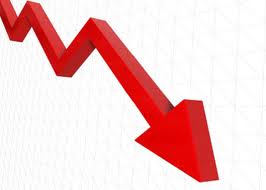


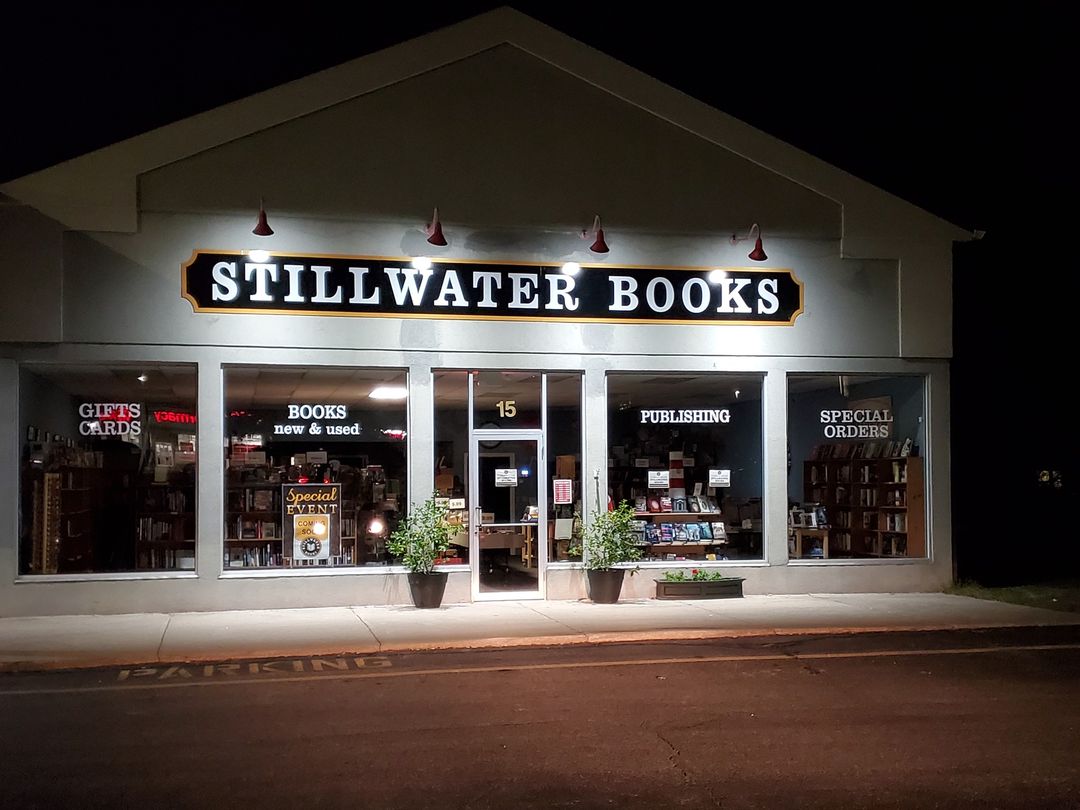

IPC.0211.T4.INDIEPRESSMONTH.gif)
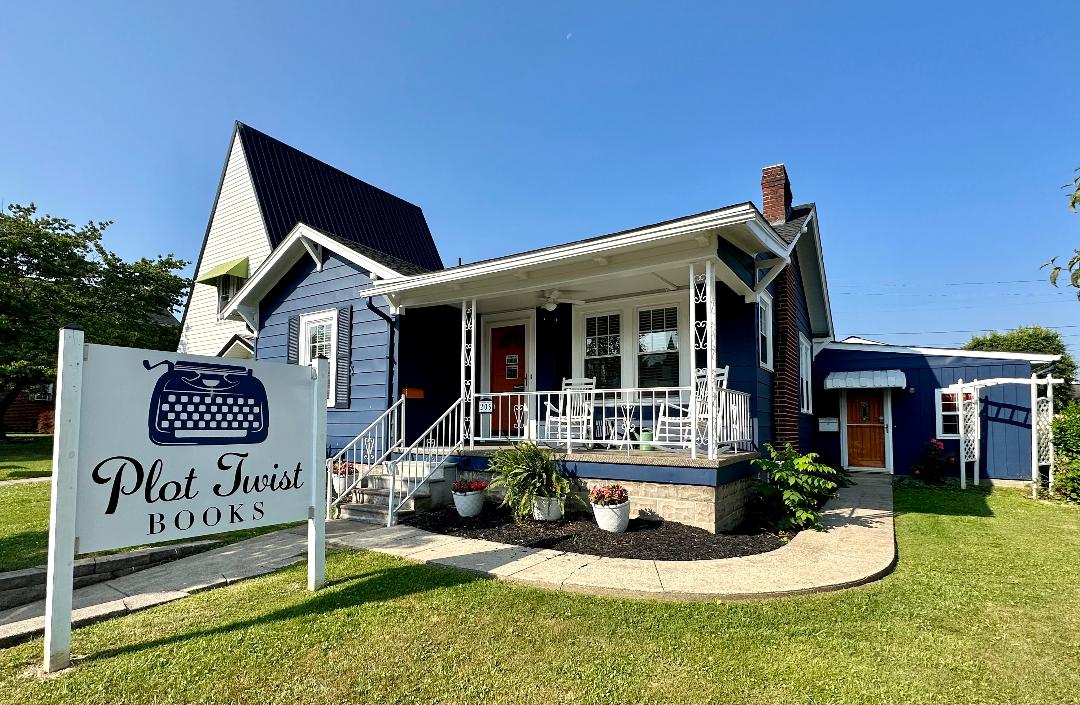
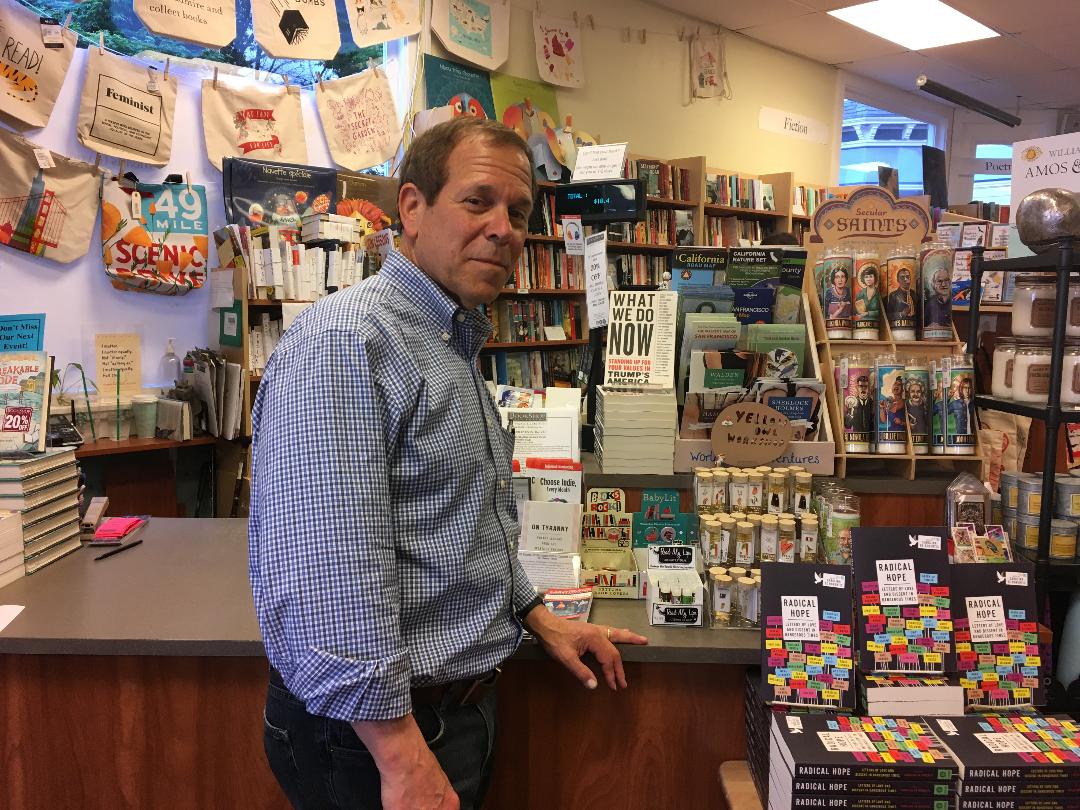
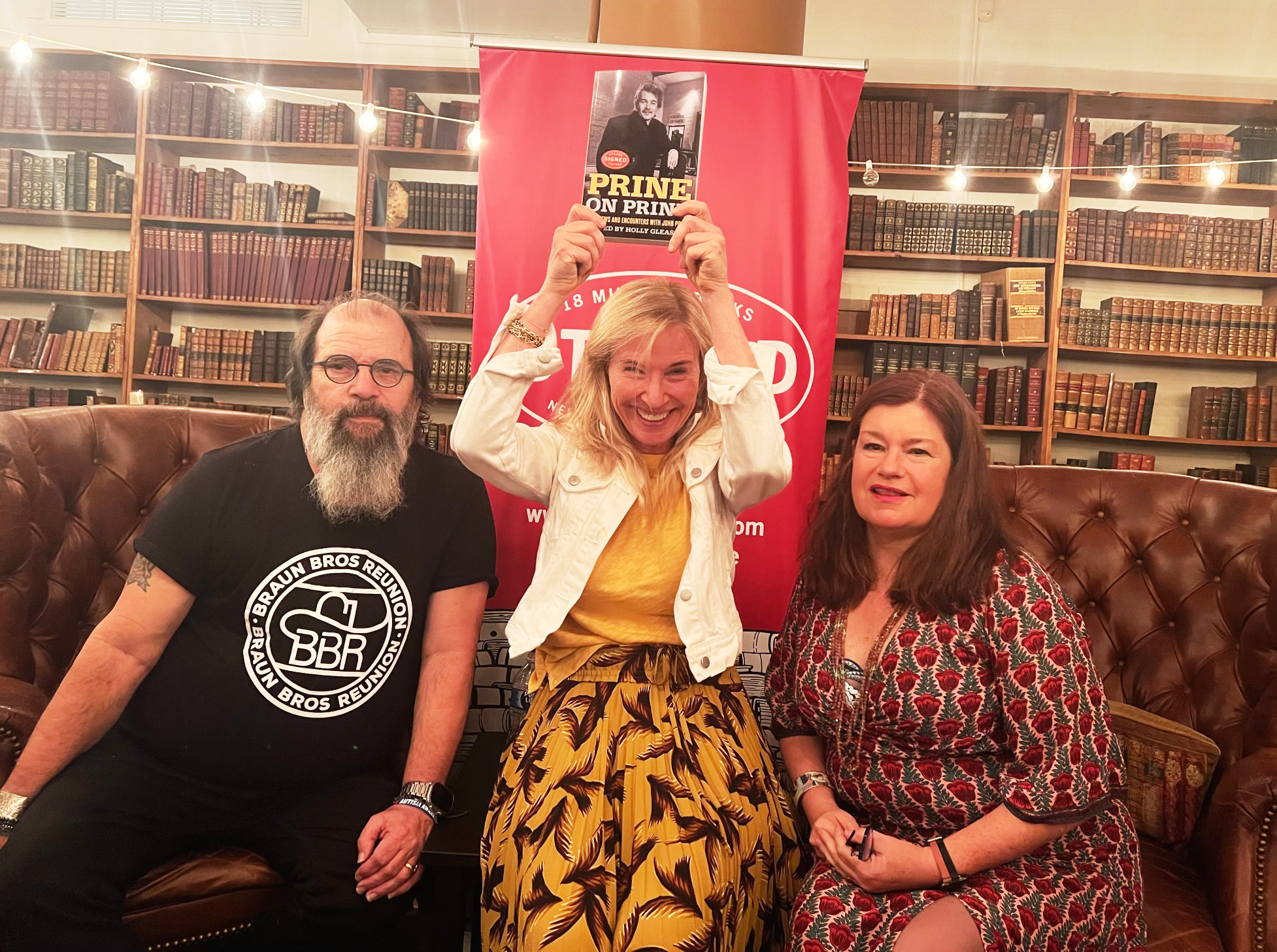 Author Holly Gleason was joined by singer/songwriter and author Steve Earle at the
Author Holly Gleason was joined by singer/songwriter and author Steve Earle at the 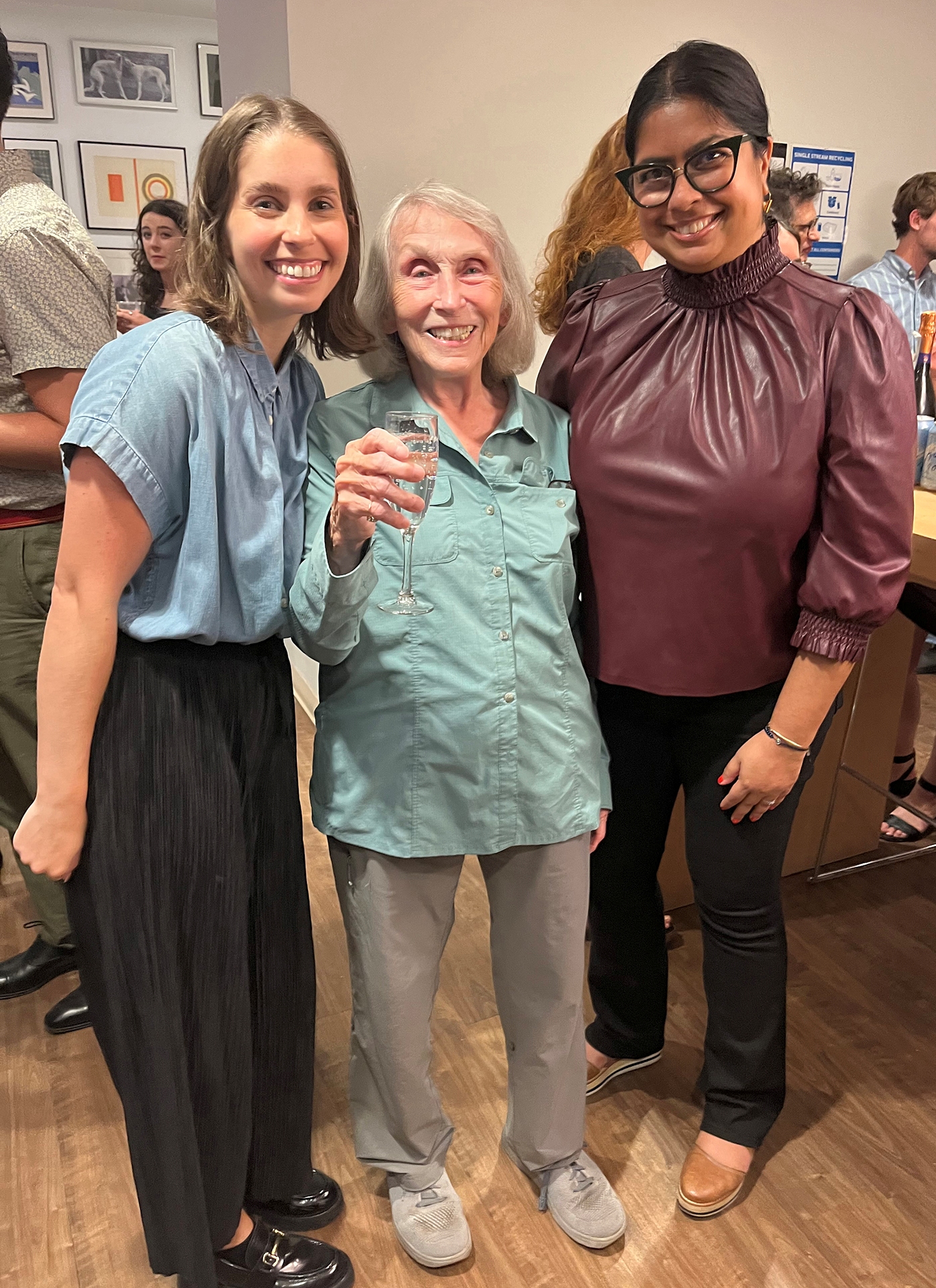
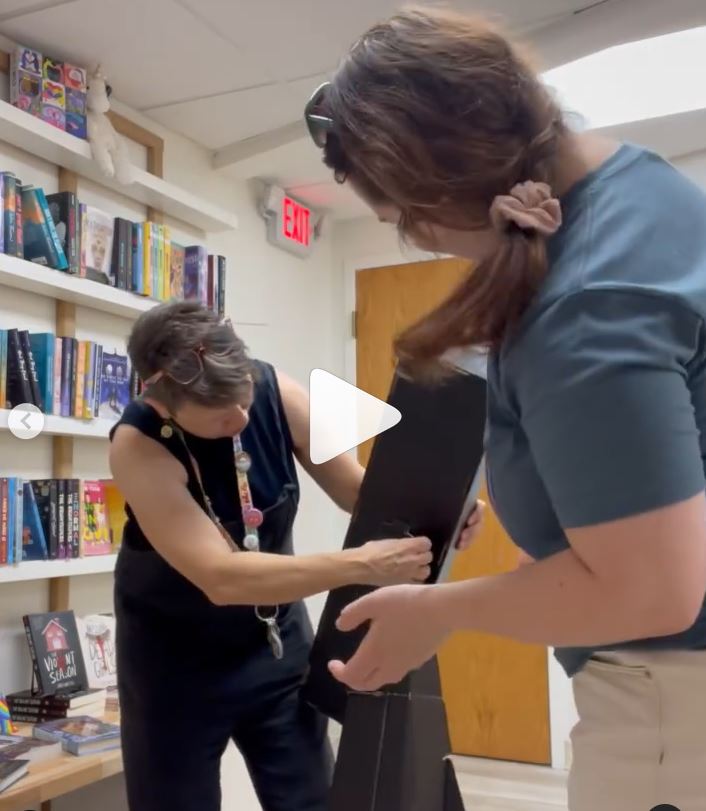
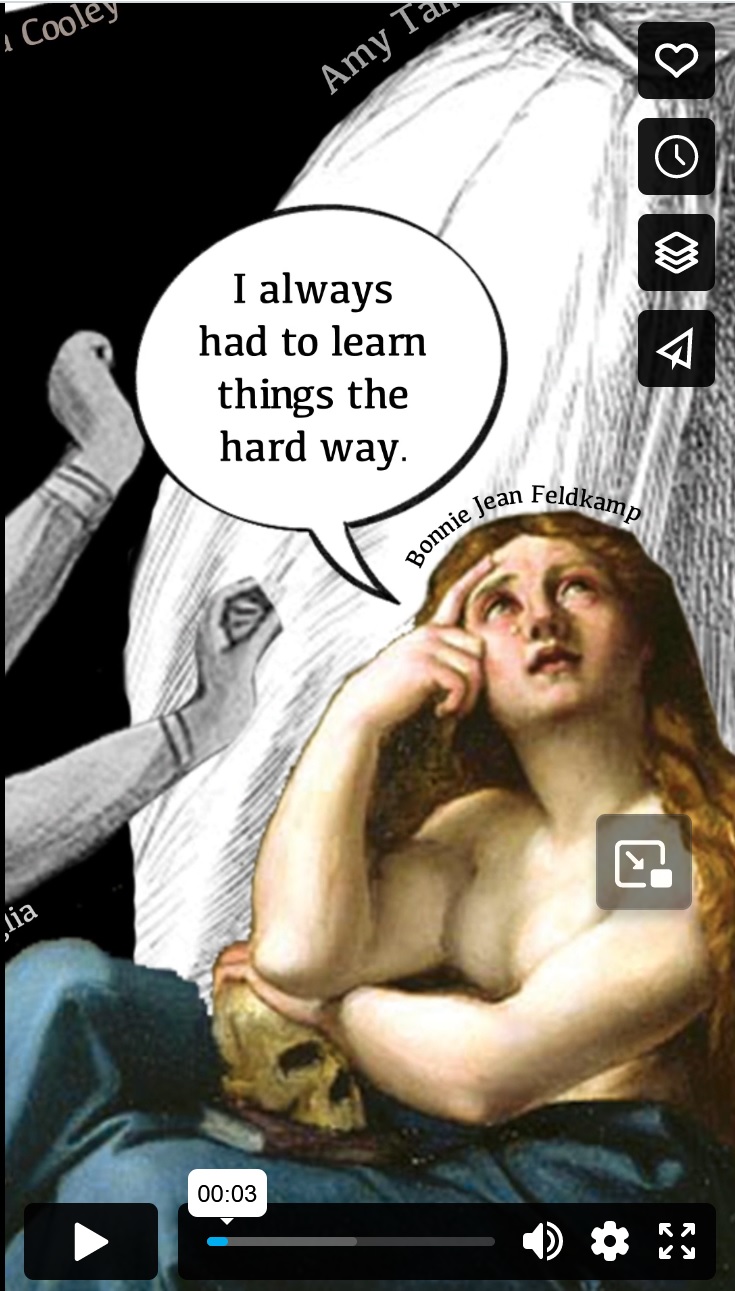 Fast Fallen Women: 75 Essays of Flash Nonfiction
Fast Fallen Women: 75 Essays of Flash Nonfiction
 Book you're an evangelist for:
Book you're an evangelist for: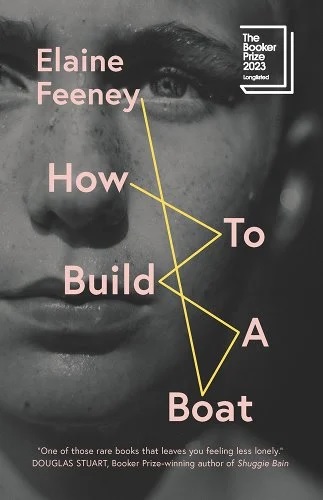 Elaine Feeney's second novel, How to Build a Boat, is a study in contrasts. Simultaneously quiet and riotous and equal parts light and darkness, the Booker Prize longlisted novel focuses on Jamie, starting his first year at an all-boys secondary school in West Ireland. Jamie displays many traits of neurodiversity, such as hyperfixation, pattern recognition, and sensory dysregulation, but Feeney (As You Were) applies no diagnostic label; instead, she has Jamie speak for himself, and his voice--the driving force behind this novel--is spot on. Jamie loves maths, the lectures of Field Medal-winner Maryam Mirzakhani, and the color red. He speaks plainly about his mother Noelle's death at his birth, though the fact of it doesn't change his desire to build a perpetual motion machine, one that relies on no energy inputs, one that might connect him to Noelle. Jamie "knew something was missing, a vacuum to where a mother should fit, and he had a fixed determination to fill it."
Elaine Feeney's second novel, How to Build a Boat, is a study in contrasts. Simultaneously quiet and riotous and equal parts light and darkness, the Booker Prize longlisted novel focuses on Jamie, starting his first year at an all-boys secondary school in West Ireland. Jamie displays many traits of neurodiversity, such as hyperfixation, pattern recognition, and sensory dysregulation, but Feeney (As You Were) applies no diagnostic label; instead, she has Jamie speak for himself, and his voice--the driving force behind this novel--is spot on. Jamie loves maths, the lectures of Field Medal-winner Maryam Mirzakhani, and the color red. He speaks plainly about his mother Noelle's death at his birth, though the fact of it doesn't change his desire to build a perpetual motion machine, one that relies on no energy inputs, one that might connect him to Noelle. Jamie "knew something was missing, a vacuum to where a mother should fit, and he had a fixed determination to fill it."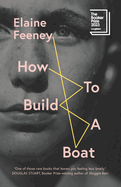
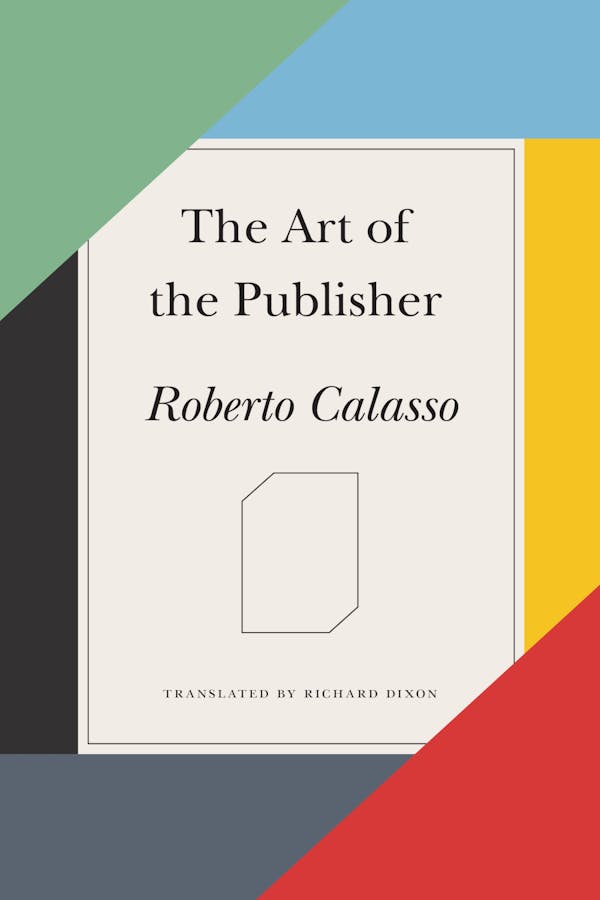 The cover flap is a humble and arduous literary form.... For a publisher, it is often the only opportunity to spell out what spurred him to choose a particular book. For the reader, it is a text to be read with caution, for fear of it being a piece of surreptitious hype. And yet the cover flap is part of the book, of its physiognomy, like the color and picture on the front cover, like the typeface in which it is printed. And a literary civilization can be recognized by the way its books are presented.
The cover flap is a humble and arduous literary form.... For a publisher, it is often the only opportunity to spell out what spurred him to choose a particular book. For the reader, it is a text to be read with caution, for fear of it being a piece of surreptitious hype. And yet the cover flap is part of the book, of its physiognomy, like the color and picture on the front cover, like the typeface in which it is printed. And a literary civilization can be recognized by the way its books are presented.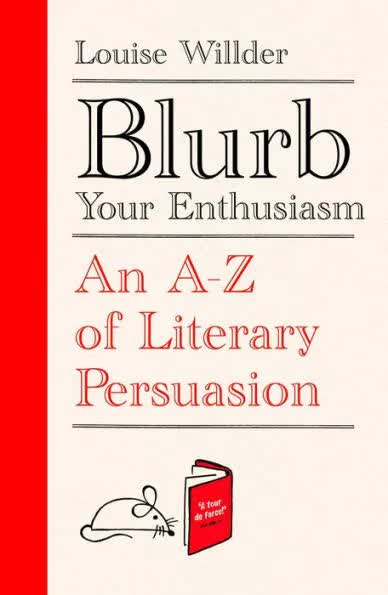 "The practice of 'blurbing' has a fairly ignoble reputation, seeming to many like an endless merry-go-round of hype, mutual back-slapping and back-scratching; the worst kind of literary cronyism," longtime copywriter Louise Willder wrote in her book Blurb Your Enthusiasm.
"The practice of 'blurbing' has a fairly ignoble reputation, seeming to many like an endless merry-go-round of hype, mutual back-slapping and back-scratching; the worst kind of literary cronyism," longtime copywriter Louise Willder wrote in her book Blurb Your Enthusiasm.